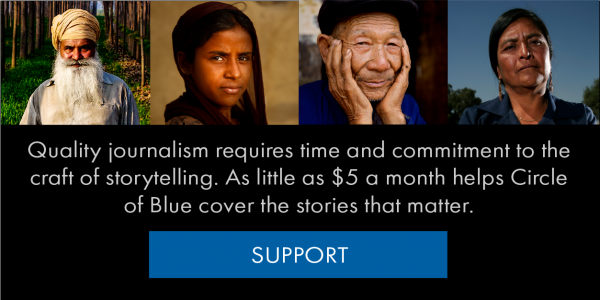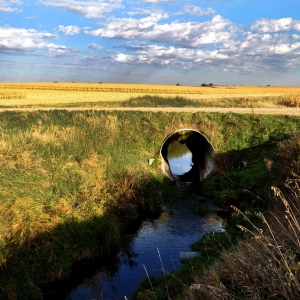The Stream, April 25: Torrential Downpour in South Africa Leaves 60 Dead, Hundreds Displaced
The Global Rundown
Flooding and landslides sweep through eastern South Africa, leaving 60 dead. Unprecedented rainfall rejuvenates marshlands in Iraq. Herders in Mali rely on satellite imagery to find watering holes. Another cyclone barrels toward Mozambique. A new report warns that government intervention is needed to avoid intensifying drought in Southeast Asia.
“Water is life here. Fish and animals can’t live without it, and neither can we.” –Taher Mehsin, a fishermen, in reference to Iraq’s marshlands. The historic marshlands, thought to be home to the biblical Garden of Eden and a UNESCO world heritage site, have dried up in recent years due to poor rainfall and upstream damming. Unexpected rainfall in the past several months, though, has helped revive the parched wetlands. Reuters
Latest WaterNews from Circle of Blue
New Zealand Waterways Fouled by Farm Runoff, Tourist Waste — Pesticides, trash, and heavy metals litter New Zealand’s waterways.
Paradise Officials Unveil $53 Million Plan to Rid Damaged Water Pipes of Contaminants — It could be February 2021 until the California town’s water system is completely cleared of chemicals introduced during the disastrous Camp Fire.
By The Numbers
60+ People killed along South Africa’s eastern coast after heavy rainfall led to flooding and mudslides. The storm has also displaced more than 1,000 South Africans. Reuters
66 million People in Southeast Asia that have been impacted by drought in the past three decades, according to a new report by the United Nations and the Association of Southeast Asian Nations (Asean). The report warns that drought in the region will become more extreme unless government action is taken, such as developing early warning systems and helping households and businesses adapt to drought. South China Morning Post
Science, Studies, and Reports
A steady trend of warmer, drier weather is making herding in Mali more difficult, but at the same time, satellite technology is helping herders find watering holes more efficiently than ever before. With a mobile phone, herders can see up-to-date information on the locations of watering holes, while also monitoring crop failures and signs of drought. MIT Technology Review
On the Radar
Cyclone Kenneth is expected to make landfall in Mozambique on April 25, a little more than a month after Cyclone Idai devastated the country. Meteorologists warn that the new cyclone could be the strongest ever recorded in the region. BBC

Kayla Ritter is a recent graduate of Michigan State University, where she studied International Relations and Teaching English to Speakers of Other Languages. She is currently based in Manton, Michigan. Kayla enjoys running, writing, and traveling. Contact Kayla Ritter






Leave a Reply
Want to join the discussion?Feel free to contribute!